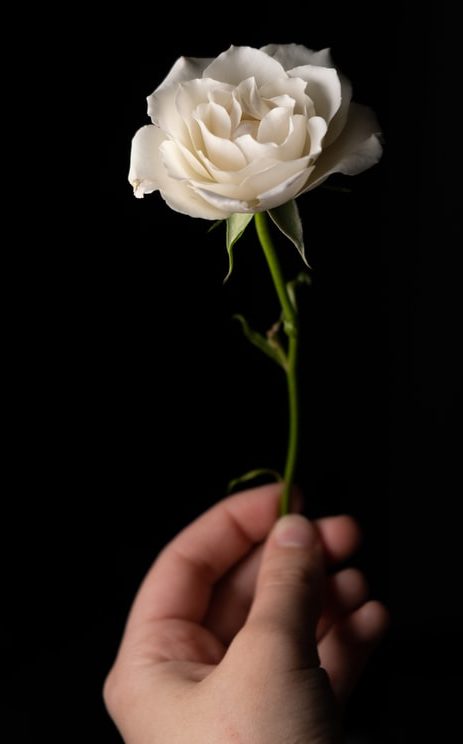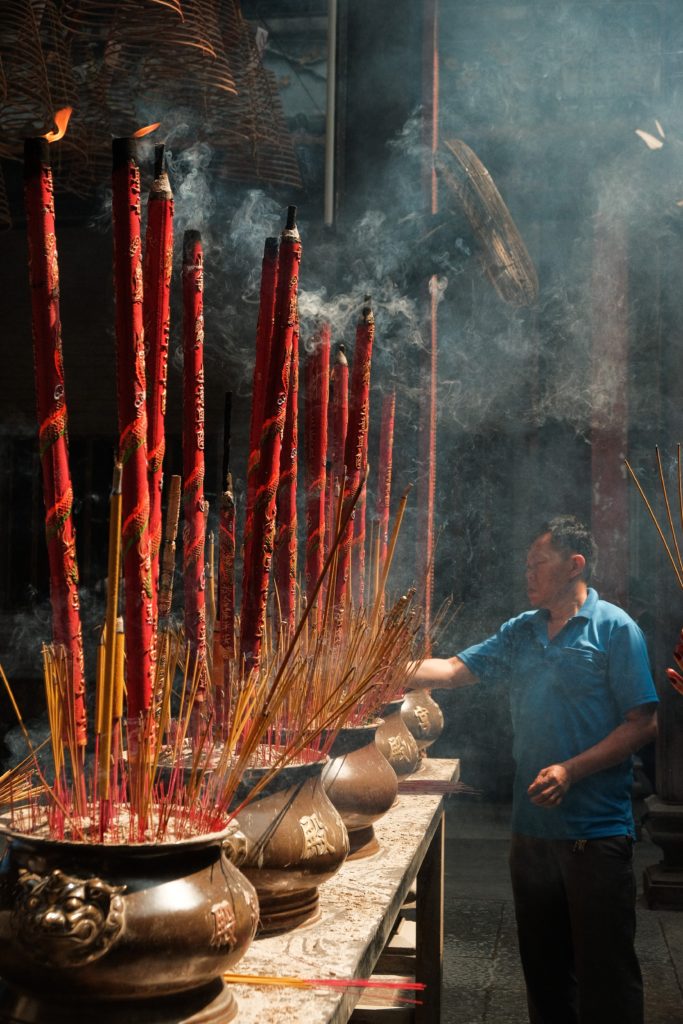Vu Lan & Ghost Festivals Posted by Kandle Dart on Aug 23, 2021 in Culture, Events
Originating from China, the Lễ Vu lan and Cô hồn (Vulan and Ghost festivals) are always on the full moon of the seventh lunar month (July 15) of the year. This year, it falls on Sunday August 22 in the Gregorian calendar. Lễ Vu lan is one of the major Buddhist holidays. Lễ cúng cô hồn, believed to stem from Đạo giáo (Daoism/Taoism), happens to be celebrated on the same day as Lễ Vu lan. Phật giáo (Buddhism) and Đạo giáo have long been intertwined and practiced by the majority of the Vietnamese for a very long time. Therefore, lễ Vu lan and lễ cúng cô hồn have long become major festivals in the Vietnamese custom and tradition.
LỄ VU LAN
Vu Lan festival, or lễ Vu lan, also known as lễ Báo hiếu (Filial ceremony) is the day for the children to show their filial piety to their parents and ancestors. People burn incense in the temples and/or at home praying for the living parents to have good health and good life, or for the late parents to be free from hell and to soon go to heaven. The Vietnamese don’t have a “Mother’s Day” like in the United States. Lễ Vu lan is considered an equivalent “Mother’s Day” for most Vietnamese.
On this special occasion, a ceremony often performed in the temples includes the “bông hồng cài áo” (rose pinned on the shirt) ceremony. A red rose is pinned on those with living parents while a white rose is pinned on those who’ve lost their parents. In 1962, Thiền sư (Buddhist zen master) Thích Nhất Hạnh, wrote a short essay in Vietnamese with the title “Bông Hồng Cài Áo” to appreciate the mothers’ existence and their love. To end the essay, he wrote “That’s the chorus I want to sing to you today. Let’s sing to remind us not to forget the life we were given. As I pin this red rose on your shirt, be happy.” Inspired by the essay, Phạm Thế Mỹ wrote a song with the same title “Bông Hồng Cài Áo” in 1967. Since then, this song has been widely sung on each lễ Vu lan and the “bông hồng cài áo” also became a tradition in temples on that day. It’s a beautiful ceremony to remind us of the duty and responsibility to show filial piety to our parents, especially to our mother.
Posted below is the interview of Thích Nhất Hạnh about “Bông Hồng Cài Áo” and the song that has been sung by various singers (9:00; 14:13).
LỄ CÚNG CÔ HỒN
Lễ Cúng cô hồn or ngày cô hồn các đảng (Ghost Festival) or Ngày xóa tội vong nhân (sin forgiven soul’s day) or Tết Trung Nguyên (Trung Nguyên festival). Lễ cúng cô hồn on ngày rằm tháng bảy (July 15 in lunar calendar) is an important day of the tháng cô hồn (the Soul’s month). According to this belief, the king of the underworld opens the hell gate on the second of July (lunar month) to let all souls to come to the living world and return to the underworld by the midnight of ngày rằm tháng bảy.
During this month, especially on rằm tháng bảy, people will have an offering table with rice, salt, water, yellow paper money, etc. to offer to the hungry, wandering souls.
CUSTOMARY PRACTICES
It’s customary for people who celebrate these festivals to be at least a vegetarian on ngày rằm tháng bảy. Some may commit to be a vegetarian for a whole month. They also try to do some volunteer work, donate money or goods to charity, perform as many good deeds as they can, and avoid doing bad things during this month.
The prayers and offerings are for deceased parents, ancestors, and all lost souls to be free from hell, to be able to reincarnate, or to attain nirvana. The offering tables for ancestors and wandering souls are all separate. The offering table for the ancestors can be inside and/or outside the house. The offering table for wandering souls is always outside in open space.

Build vocabulary, practice pronunciation, and more with Transparent Language Online. Available anytime, anywhere, on any device.





